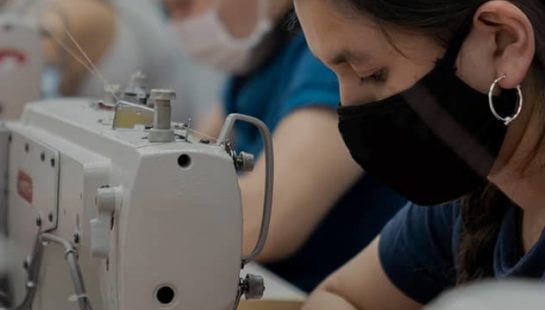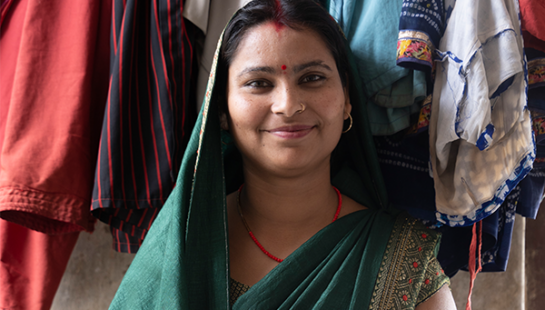From ‘eco-friendly’ collections to recycled polyester puffer jackets, sustainable fashion is on the rise, with more brands promoting their efforts to better care for our planet.
Many of us want to do our part caring for God’s creation, but unfortunately, not every claim can be trusted. A recent report by the Australian Competition and Consumer Commission named the clothing industry as one of the sectors with the highest number of potentially misleading environmental claims.
The ACCC report on greenwashing by Australian businesses found that over half of the 247 businesses analysed made unclear environmental claims. The industries with the highest number of ‘concerning’ environmental claims are cosmetics and personal care; textiles, garments and shoes; and food and beverages.
‘It appears that rather than making legitimate changes to their practices and procedures, some businesses are relying on false or misleading claims,’ ACC Deputy Chair Catriona Lowe said. ‘This conduct harms not only consumers, but also those businesses taking genuine steps to implement more sustainable practices.’
Greenwashing In The Fashion Industry
Some of the deceptive practices that raised greenwashing concerns in the ACCC’s report were using vague language such as ‘green’ or ‘environmentally friendly’, making claims with insufficient evidence, using third-party certifications in a confusing way, and setting environmental goals without clear plans for how they will be achieved.
Sarah Knop, Advocacy Manager at Baptist World Aid, said that ‘eco-friendly’ claims in the fashion industry aren’t always verified by an independent source, leaving the door open for companies to make claims without providing evidence of any action being taken.
Many fashion brands also release heavily-marketed ‘environmentally-conscious’ collections made out of preferred materials, but these capsules often make up a small proportion of their product range—as little as one percent.
While the fashion industry has made some progress towards more sustainable practices, there’s still more to do. Despite how common eco-friendly claims are, our most recent Ethical Fashion Report found that of 120 companies assessed, only 14.9 per cent used sustainable fibres in over half their products. Most companies use sustainable fibres in less than 25 per cent of their products, and 17.5 per cent use no sustainable fibres at all.
The report also found that less than half of companies assessed have analysed the environmental risks associated with the top three fibres used in their products, or used this information to implement change. This means that efforts to transition to more sustainably produced fibres are less likely to be effective.
Four Ways To Shop Smarter
As a person who cares about justice, here are four ways you can learn to spot greenwashing and shop according to your values.
1. Learn about the fibres in your clothes
Some garments have more harmful impacts on the environment than others. Knowing what different clothes are made out of will help you choose fibres that are kinder to our waterways and ecosystems. If you find this overwhelming, our brief fibre guide is a good place to start.
2. Know which certifications to check for
Certifications provide independent, third-party verification that a brand meets specific environmental standards. Some common certifications to look out for are Better Cotton (Formerly BCI), GOTS (Global Organic Textile Standard), the Leather Working Group, Forrest Stewardship Council and OEKO-TEX.
You can also use our Brand Finder tool to see the progress a fashion brand is making towards using sustainable fibres and reducing emissions.
3. Buy second-hand where you can
Buying clothes second-hand is the simplest, most fun and most affordable way to tick a lot of sustainability boxes. It stops clothes from going straight to landfill, avoids using additional resources to manufacture new clothes, and encourages a circular fashion economy that’s better for our planet.
4. The most sustainable wardrobe is the one you already have
Buying less, or where possible not buying at all, is far more sustainable than shopping according to trends. Have an event coming up? Why not borrow a dress, shoes or an entire outfit from a friend. Renting high-end pieces is gaining popularity and there are numerous style options to choose from. You might also like to consider hosting a clothes swap with your friends where you can ‘shop’ each other’s wardrobes and take home something that is ‘new to you’.



 Baptist World Aid
Baptist World Aid
